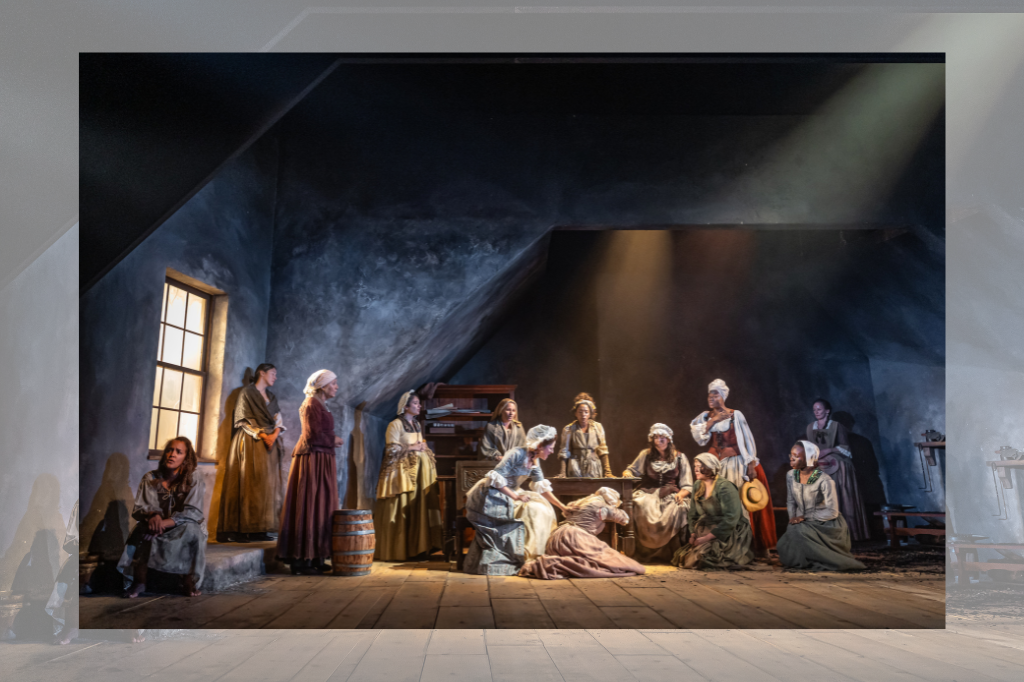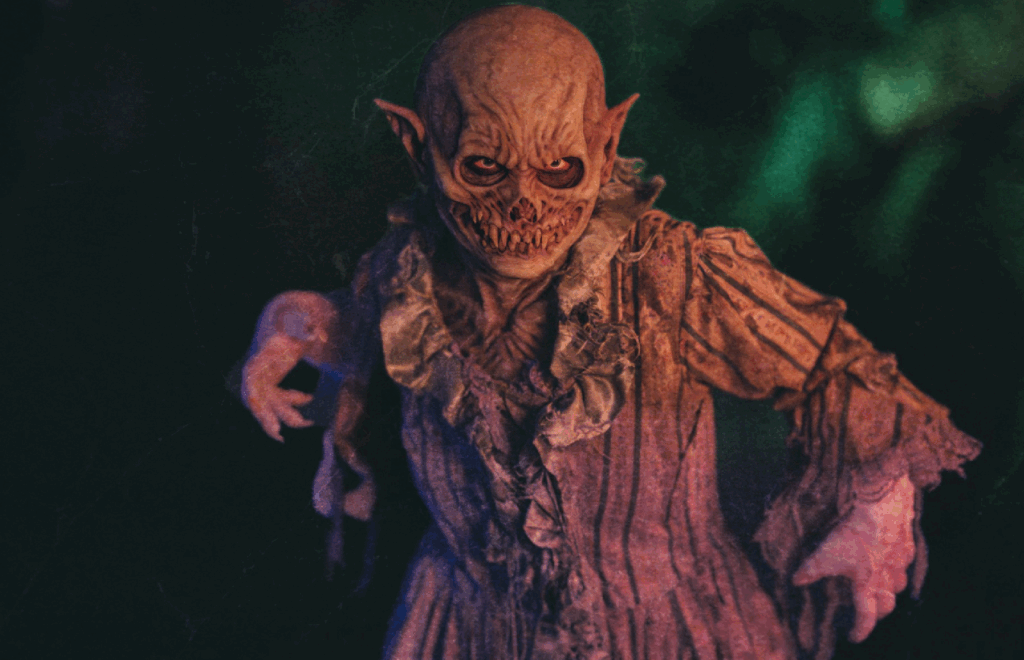The first new production of Mark Rosenblatt’s Olivier-award-winning Giant since its London premiere in September 2024 opened in Barcelona on 5 July as part of this year’s Grec festival. Actor Josep Maria Pou has premiered a fair number of new English plays in Catalan over the years, from David Hare’s Skylight in 2003 to Alan Bennett’s History Boys in 2008. Now, working with translator Joan Sellent and director Josep Maria Mestres – who directed Pou in Florian Zeller’s The Father in 2023 – he turns to Rosenblatt’s debut single room play. Set over the course of a single day in 1983, it centres on the celebrated children’s author Roald Dahl. He is dealing with the proofs of The Witches, major disruptive renovations of the home he shares with his fiancée Felicity ‘Liccy’ Crossland, and an imminent public relations disaster on his doorstep following his publication of a contentious review of a picture book about the Israeli army’s siege of West Beirut in 1982 during the Lebanon War, that has been judged to be antisemitic.
So Roald’s publisher Tom Maschler has come to visit to try and help make the controversy go away, only his American publisher Farrar, Straus & Giroux has sent a marketing sales director, Jessie Stone, from New York to solicit an apology from the recalcitrant author. Dahl’s realisation that Stone is Jewish prompts him to bait her – more subtly in Act 1 and then in Act 2 more nastily as overt antisemitism is exposed with shocking consequences.
In the London production last year, John Lithgow – with a striking resemblance to the author – gave a cool and measured Roald. Pou renders a more boyish and petulant figure. Like Lithgow he has an imposing presence, which he uses to tower over Clàudia Benito’s neatly turned out Jessie Stone. While Romala Garai’s Jessie was clad in bright red, here costume designer Nidia Tusal has Benito in a fitted mid-blue dress with matching shoes – a less provocative colour but the cut of the dress has something of a prim uniform about it. She looks as if she has just come from the office and means business. Tom, Liccy and Dahl are in leisure attire – Tom ready to go off and play tennis with Ian McEwan – which he doesn’t get to do because of the escalating crisis with Roald.
Tom is the arch assimilator: his Jewish family are Holocaust survivors and he has sought to integrate into established English society and make light of any discrimination that has come his way. He turns up at the Dahl house with a breezy entrance, arms swinging as if ready to serve in a tennis match. Pep Planas’ Tom starts out more nonchalant, but as the action progresses, he becomes more direct and edgy. He cuts a somewhat agitated Tom, more tense than Elliot Levey’s London incarnation of the role. He hovers at the margins of the room in Act 1, as if hesitating to get too close physically. He isn’t however afraid to raise his to voice to Roald. Less conciliatory in tone than Elliot Levey, there is a genuine frustration that he sees Roald as a friend and has his interests at heart, while Roald sees him as his commercially-minded publisher who just wants to keep the money rolling in.
It is a marker of Josep Maria Mestres’ intelligent production that he doesn’t try and replicate the register of Nicholas Hytner’s staging. Rather he has inflected his reading with a distinctly Iberian tone and an acting style that is less restrained in its naturalistic register than that of UK actors. Victòria Pagès’ Liccy does not have the glamour or haughty quality of Rachel Stirling’s London Liccy. She is an altogether more homely and down-to-earth figure, bustling around the dining room in her orange shirt, cream cropped trousers and comfortable sandals. There’s a clear complicity between Liccy and Tom here; she raises her eyebrows towards Tom in frustration at Roald’s comments as if she’s heard it all before and just allows it to wash over her. While Stirling floated around the room, in her elegant white blouse and effortlessly cultivated sense of style. Pagès fusses and hovers, maternal in her dealings with Pou’s Roald. Indeed, Pou’s characterisation is that of an adult child. It’s clear that he likes to be waited on. Both his publisher and his fiancée try their best to pacify him, failing to realise that he has strung them along and will just not play nicely.
Jordi Bonet’s sound design is effective in creating the sense of a world that Roald Dahl cannot shut out. The play opens with the loud sound of building works. Sebastià Brosa’s set design creates a cluttered room, filled with boxes, rolled up carpets, and stacked tables and chairs. Roald may want to be left alone but there is no chance of that with intruding banging and drilling, people coming and going through a flimsy plastic curtain leading outdoors into the garden. The atmosphere is that of a world in flux: the ceiling is effectively being held up by steel poles. The design points to the fact that this space could collapse at any point.

Josep Maria Pou as Roald Dahl in Giant/Gegante. Photo David Ruano
And Roald’s physical condition is not unlike that of the house. He is shown to be infirm and awkward. A pile of cushions in his chair point to the crippling back pain he suffers. Awkward movement suggests a man not at ease in his body. His malevolent smile as he realises that Jessie can be a target for him displays a cruel edge. They argue around the table, Pou’s Roald leaning over her in intimidating fashion. He’s snappier than Lithgow and as people move around him and renovation works can be heard in the distance, he is fixed – to his chair — pointing to a man unable to move with the times or shift his position.
Increasingly in Act 2, as his antisemitism becomes more pronounced and direct – Tom, Liccy and Jessie move to different corners of the room. There are moments when he steps back, as if taken aback by something he has said, but it’s just an instant, as he takes stock of others’ reactions and then resumes the attack. When gardener Wally Saunders (Jep Barceló) enters, and Roald shares that he might be nominated for a public honour they joke complicitly like naughty boys about Sir Roald. When Pou picks up the phone, however, to ring the New Statesman interviewer who is hoping to secure a follow-up piece on his position on Israel, the die is cast and the plans proposed by Tom and Liccy to agree to an interview with the Daily Mail to recast him as a national treasure are destroyed. The cook housekeeper (Aida Llop) watches incredulously as he reveals the extent of his antisemitism, removing her apron as she leaves the room unobserved by Roald.
Mestres’ production, like Hytner’s, boasts strong performances at the core. The conflict between Jessie and Roald is taut and edgy and Benito’s Jessie stands her ground in confronting his antisemitism head on. Pou’s Roald, cane in hand, walks uncomfortably around the room as if unable to find a place to be; the arrogance and self-delusion is palpable. His is a mindset that won’t budge. Hytner’s production was cooler, Mestres brings a livelier pacing where the bad behaviour of Roald feels more like of a spiteful boy who has refused to grow up and meets his match in a woman who challenges his problematic assumptions with considered defiance. The danger of seductive rhetoric is all too clear as Pou’s Roald cries out romantically like a wailing Lear, hoping that all around him will buy into his vision or be browbeaten into agreeing. He refuses to engage with Tom and Jessie’s efforts to distinguish legitimate political critique of Israel’s actions from broader questions of Jewish identity and belonging. Roald thinks that his standing gives him the right to pronounce judgements, but the piece makes clear that fame and success can never justify bullying or intimidation.
Gegant/Giant ran at Romea theatre, Barcelona as part of Grec festival from 5 July to 3 August. It runs at the Goya theatre, Barcelona from 2-12 October and then tours through Catalonia (November, December and January). A Spanish-language version opens at the Bellas Artes theatre Madrid in February 2026 playing through to April then then tours through Spain (May, June, October and November 2026.
This post was written by the author in their personal capacity.The opinions expressed in this article are the author’s own and do not reflect the view of The Theatre Times, their staff or collaborators.
This post was written by Maria Delgado.
The views expressed here belong to the author and do not necessarily reflect our views and opinions.















